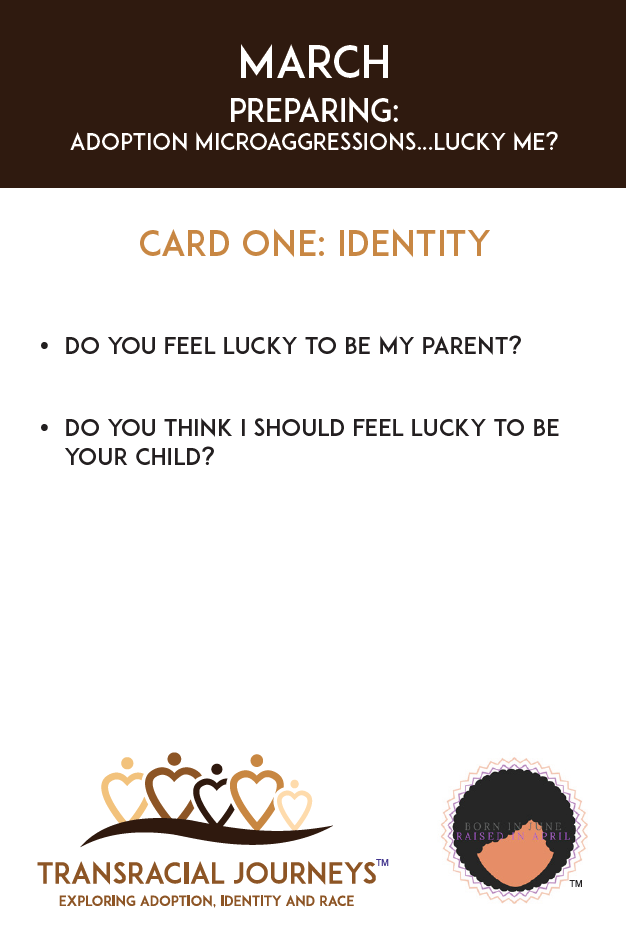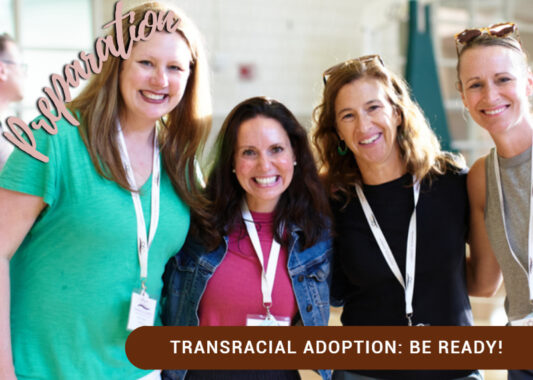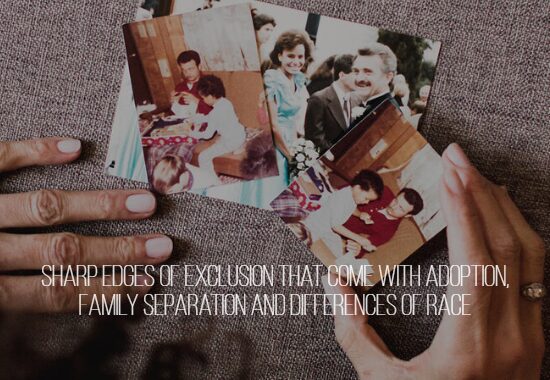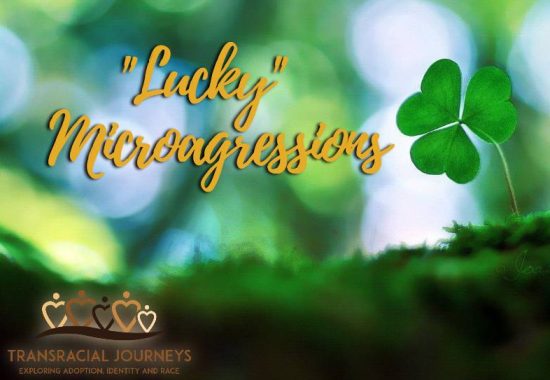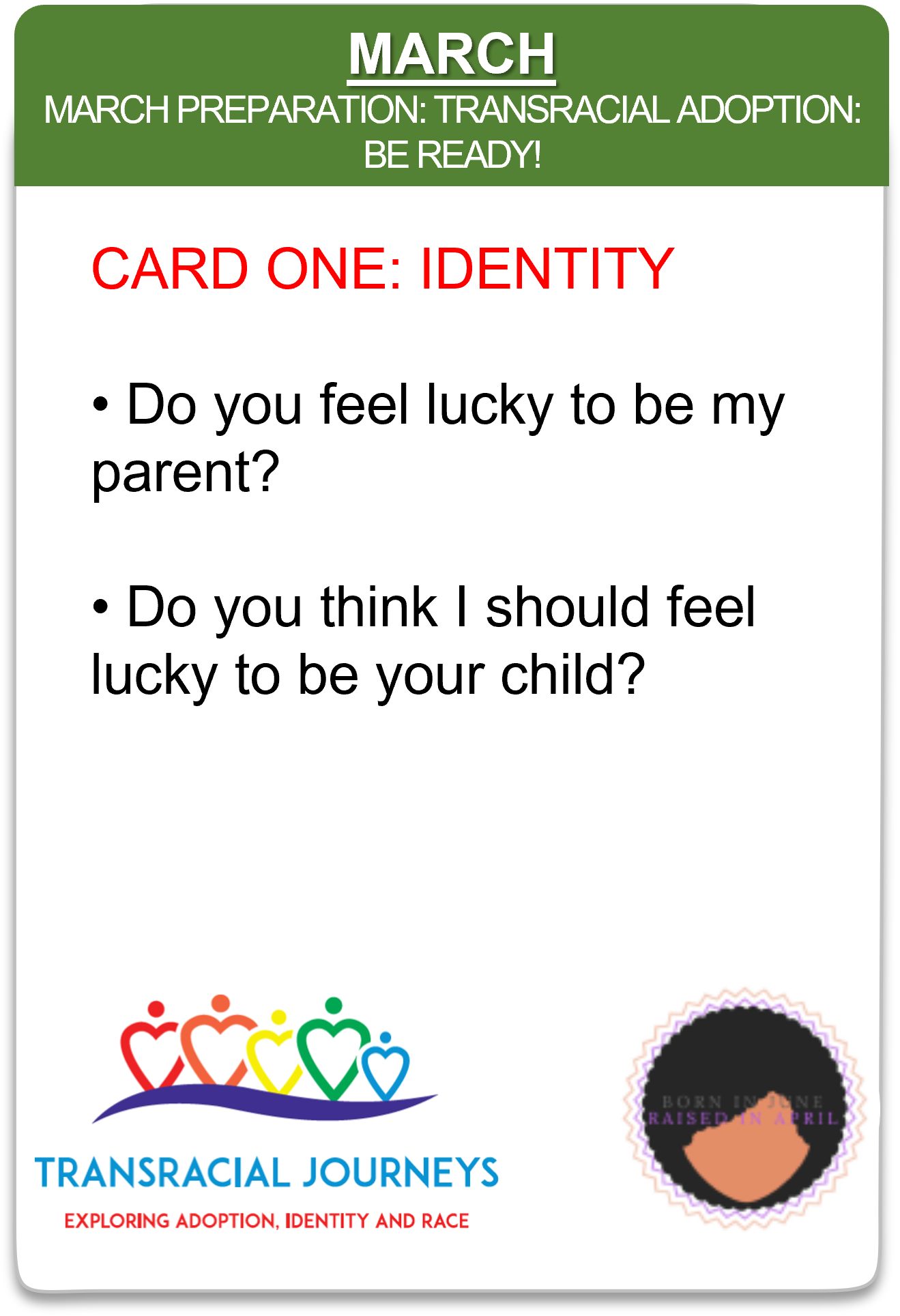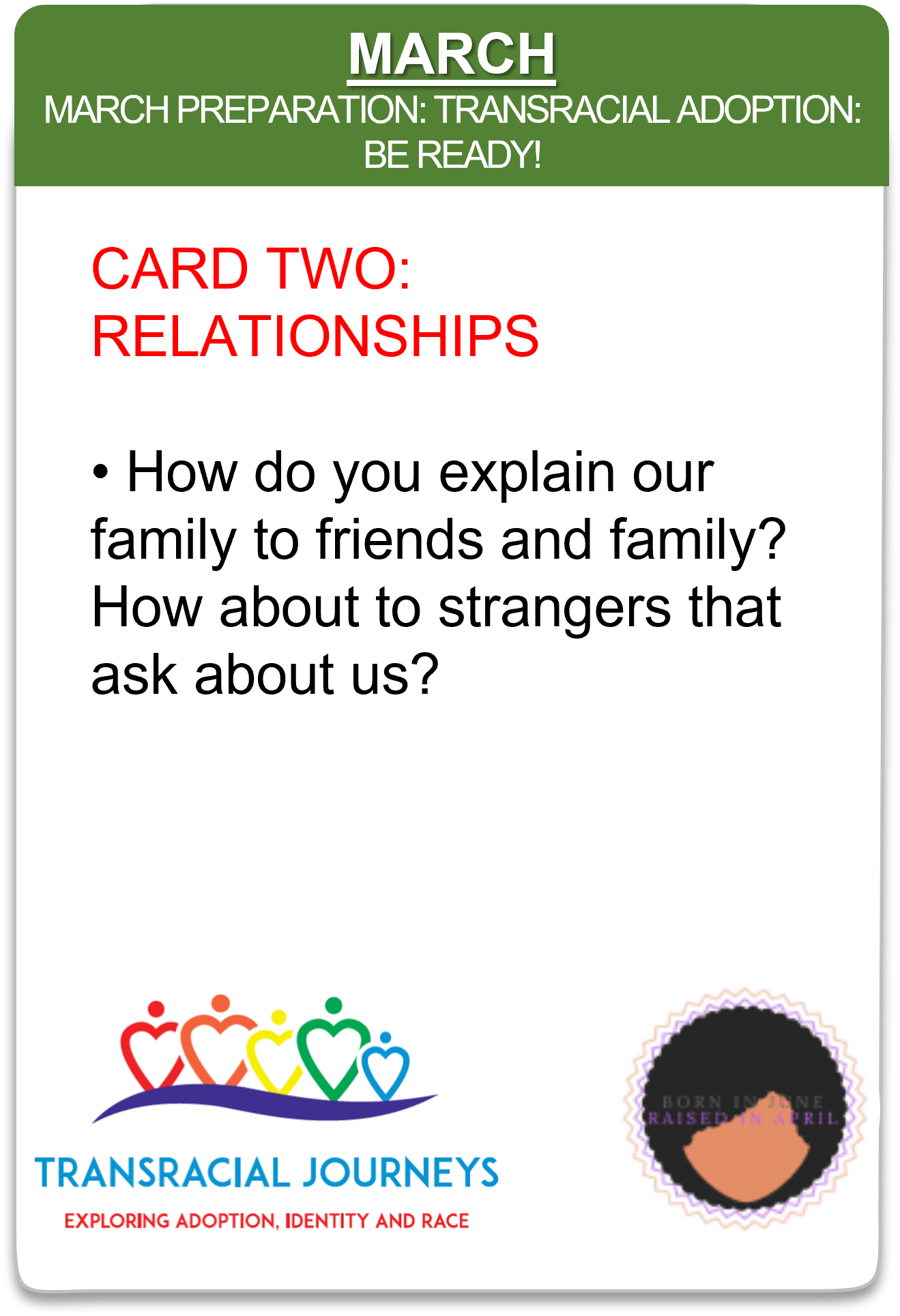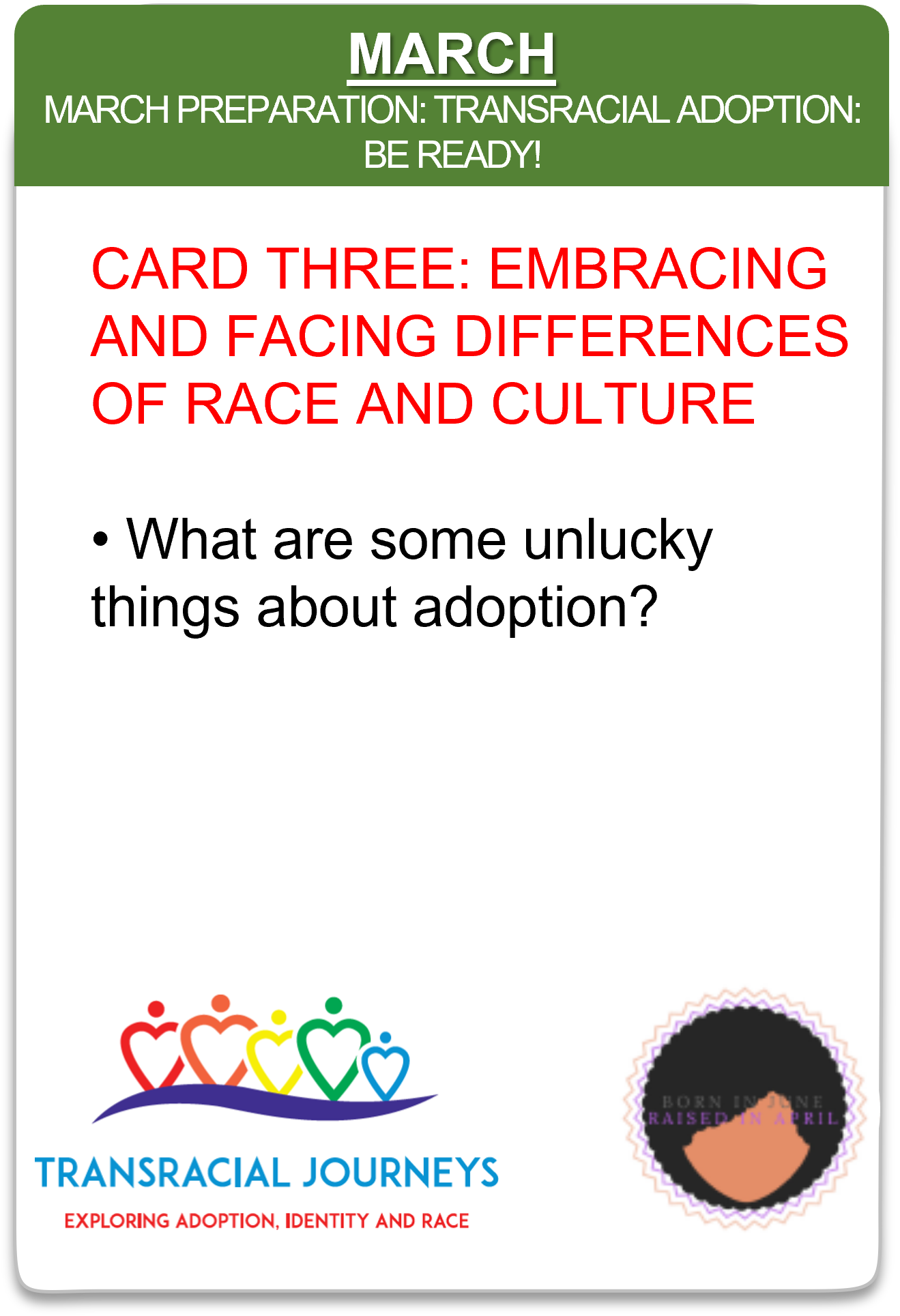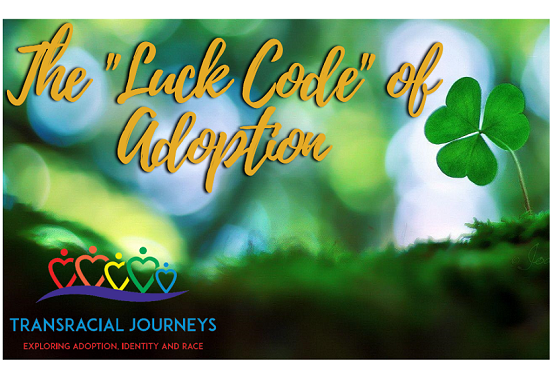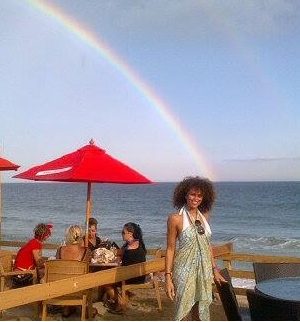by Avril McInally
By now, many of you have probably experienced the “Lucky to be adopted” commentaries that society heaps upon adoptees and families formed or extended by adoption. It’s March, I’m thinking about St. Patrick’s Day with its accompanying themes of rainbows, pots of gold and luck.
When I think about luck and I look back on my life, I’m struck by the intrusiveness of luck conversations which began occurring after I adopted my daughter. So many strangers have said to my child, “you’re so lucky to have been adopted!” Sometimes, this commentary would include remarks that my daughter should be grateful for my “rescue” of her. As these assaults accumulated and I learned more about race and racism, I began to view them as microaggressions. As I processed and unpacked more of my daughter’s lived experience, I arrived at the basic fact that luck had nothing to do with her adoption journey at all!
Understanding Microaggressions and Their Impact
“Microaggressions are defined as the everyday, subtle, intentional — and oftentimes unintentional — interactions or behaviors that communicate some sort of bias toward historically marginalized groups. The difference between microaggressions and overt discrimination or macroaggressions, is that people who commit microaggressions might not even be aware of them.”
This lack of awareness…this obtuseness has caused my children and my daughter’s family of origin cumulative damage and pain. Yet if I were to tell the commenters of the damage they were causing, they often would react defensively. They disregard and have no understanding of our children’s loss of their family of origin and their family of origin’s loss of their child! Luck has no place in adoption.
Taking some liberties with the article “Microaggressions are a big deal: how to talk them out and when to walk away" by Andrew Limbong, I made some edits in order to reflect our particular perspective.
“Oftentimes people of color [, adoptees and children] are asked to educate white [non-adopted, adults] people on issues that the person of color [adoptee and child] has lived with and thought about for their entire lives. That can be very psychologically and emotionally exhausting for a person to then have to care about the white [non-adopted and adult] person's feelings and to take those extra efforts so that they can learn something that they should have — and could have — learned throughout the duration of their life.”
Microaggressions from the Perspective of a Transracially-Adopted Child
In most of the literature I've read about microaggressions, the status of the adoptee is not considered. So, I took the liberty (with apologies to the author) of viewing this theme in particular from the perspective of a transracially-adopted child. There’s not a lot written about microaggressions in adoption. That’s why I’m talking about it here and why I’m shining a light on a useful article called “Helping Your Adopted Child Handle Adoption Microaggressions” at creatingafamily.org. Not only does the article identify microaggressions towards adopted children, but it gives some scripts you can rehearse with your child to prepare them for these intrusive comments and questions.
Being Our Children's Allies
At the heart of the matter, we need to be not just our children’s parents, but their allies. When they’re old enough, we can ask them how they would like us to respond in situations like this. Until they’re old enough, it’s up to us to stand up for our children. The adults in these conversations often unwittingly challenge or harm our children’s identities. These conversations are not ok and the children entrusted to us will mature into adults that may still need their elders to stand beside them.
After having read and researched this month’s feature for our newsletter, I’ve come to see the term microaggression is falling from favor. In the book How to Be an Antiracist, author Ibram X. Kendi writes, “I do not use ‘microaggression' anymore. I detest the post-racial platform that supported its sudden popularity. I detest its component parts - ‘micro’ and ‘aggression.’ A persistent daily low hum of racist abuse is not minor. I use the term ‘abuse’ because aggression is not as exacting a term.” Dr. Kendi is clearly addressing racism here and not the intersectionality of the adoptive status of our children, but we can call it out for what it is.
These luck conversations and savior conversations are abusive.
Whatever you call “it”, Dear Reader, recognize it for what it is and continue to protect and love your children.
For help starting conversations about the "luck" language with your adopted children, see Preparation: Transracial Adoption: Be Ready! and refer to our post last year, The Luck Code.
What can help is to hold some space for having a conversation with your family about this month’s prompts. The conversation starters on our cards could help when it comes to others’ reactions to our children and families, as well as the ensuing comments of luck and saviorism that may also be aired.
